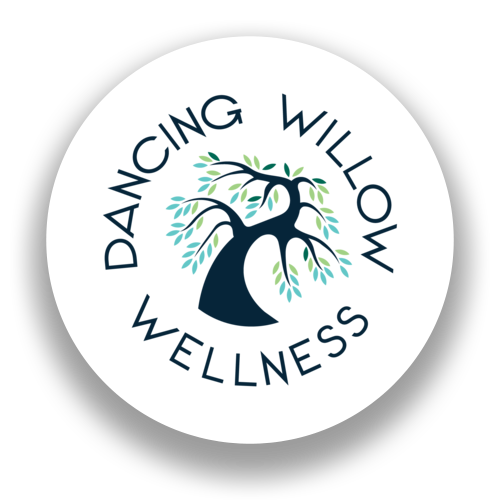Reframing 'Shoulds'
There’s a particular weight that comes with the word should.
It creeps into our thoughts quietly but firmly:
I should go to bed earlier.
I should clean the kitchen.
I should be meditating, exercising, journaling, doing more…
But when you really tune in, should doesn’t feel energizing. It doesn’t feel inspiring. It feels heavy, full of guilt, pressure and expectation.
Most importantly: it rarely leads to meaningful, lasting change.
What Happens When You Replace “Should”?
One of the simplest but most powerful shifts I share with patients is this: Swap out "should" for something softer, more honest, and more aligned.
Try one of these:
Wouldn’t it feel good if I…?
I’d like to…
I want to…
It would feel supportive to…
I’d love to…
It’s amazing how quickly this shift changes everything. It helps you clarify what’s actually important to you, not just what feels like an obligation. It invites you to act from a place of desire, care, and integrity instead of guilt or fear.
Let’s walk through a few everyday moments where this can make a difference.
Sleep
Ah, sleep. The thing we should all be prioritizing, right?
But here’s what often happens: you’ve finally got a quiet moment to yourself after a long day. The house is still. No one’s asking anything of you. And instead of going to bed, you stay up late scrolling, watching one more episode, reorganizing a drawer, or doing… anything but sleep.
This is called revenge bedtime procrastination. It’s a surprisingly common habit where we delay sleep on purpose because it’s the only time we feel like we have control. It’s not laziness. It’s a need for fun, dopamine, freedom, or just a break from being responsible. You know you’ll be tired tomorrow, but the rebellious part of you doesn’t care. You finally get to be a person, not just an adult holding it all together.
The should shows up: I should be asleep.
But underneath that is often a more honest truth: I need a moment to myself. I need to feel like I matter too.
Instead of pushing through with guilt, try asking:
What do I actually need right now?
Would rest feel supportive?
Do I need play, not pressure?
Can I offer myself even a small dose of what I’m craving? On purpose, not in protest.
Sometimes that’s closing your eyes early. Sometimes it’s watching your show with no shame. Sometimes it’s five minutes of pleasure or peace on your terms. The key is to notice the need beneath the pattern, then respond with care instead of judgment.
Dishes (or Any Chore That Feels Like a Burden)
Here’s the thing: sometimes we do things for others out of love. But when those things come with resentment or pressure, they stop feeling loving.
Instead of thinking, I should clean the kitchen, you might ask:
Would this feel good to do now, or can it wait until morning?
Am I doing this because I care, or because I’m trying to avoid conflict or judgment?
Not every task needs to be done right this second.
Not every request needs to be met with a yes.
Let your body and heart weigh in.
You can still care deeply and choose differently.
Meditation (or Any Self-Care Practice)
Meditation is beautiful. Stillness is powerful. But when it turns into a should, it can lose its healing quality and start to feel like another thing we’re failing at.
I should be meditating.
I should be more consistent.
I should be better at this by now.
Sound familiar?
Instead, consider:
What would help me feel more grounded right now?
What kind of care feels realistic and nourishing today?
Is there a way to do this and something else at the same time? (perhaps a moving meditation while doing the dishes or laundry)
Meditation, breathwork, a walk outside, music, quiet, connection; there are so many ways to return to yourself. The goal isn’t perfection. It’s presence. And that starts by letting go of shame and choosing what feels good to you.
What About “Try”?
Try is another word that can sneak in and quietly drain our energy.
“I’ll try to get up early.”
“I’ll try to take better care of myself.”
“I’ll try to make time for rest.”
Here’s the honest truth: try is often a sign we’re not quite ready to commit or that something about the plan doesn’t feel right.
It’s not a flaw. It’s a signal. A gentle tap on the shoulder that says: Pause. Check in. Is this really what you want? Is this realistic? Does it feel aligned?
Sometimes try reveals that our expectations are too high. Sometimes it shows us we need better support or more spaciousness. Sometimes it’s a placeholder for no that we’re not ready to say out loud.
So instead of saying I’ll try, ask yourself:
Is this something I truly want?
Do I have the energy and capacity for it?
Would it help to make it simpler or smaller?
What would feel honest and supportive instead?
You Don’t Have to “Should” Yourself Into a Better Life
You don’t have to hustle your way into being more worthy. You don’t have to perform wellness. You’re allowed to choose what’s right for you, in your timing, in your way.
That’s what integrity looks like.That’s what healing often requires: not just doing the “right” thing, but doing the thing that feels true.
So next time you hear that “should” voice pipe up, pause and ask:
Is this for me or someone else?
What would feel better right now?
What’s the smallest, kindest next step I could take?
And if the answer is to do nothing at all for a moment? That’s okay, too.
You deserve a life that feels honest, spacious, and meaningful.One decision, one word swap, one moment at a time; you’re allowed to move toward that.
Here’s to choosing alignment over obligation. Here’s to doing what feels like you.
Andrea



